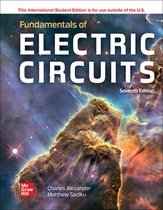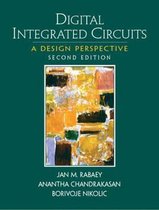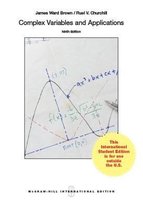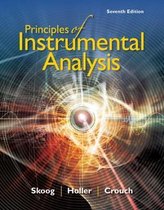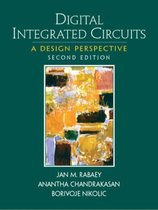Principles Of Electronic And Electromechanic Power Conversio A Systems Approach
Afbeeldingen
Sla de afbeeldingen overArtikel vergelijken
- Engels
- Hardcover
- 9781118656099
- 18 maart 2014
- 328 pagina's
Samenvatting
A top-down approach that enables readers to master and apply core principles
Using an innovative top-down approach, this text makes it possible for readers to master and apply the principles of contemporary power electronics and electromechanic power conversion, exploring both systems and individual components. First, the text introduces the role and system context of power conversion functions. Then the authors examine the building blocks of power conversion systems, describing how the components exchange power. Lastly, readers learn the principles of static and electromechanic power conversion.
The Principles of Electronic and Electromechanic Power Conversion opens with a chapter that introduces core concepts in electrical systems and power conversion, followed by a chapter dedicated to electrical power sources and energy storage. Next, the book covers:
- Power, reactive power, and power factor
- Magnetically coupled networks
- Dynamics of rotational systems
- Power electronic converters
- DC machines
- AC machines
The text offers readers a concise treatise on the basic concepts of magnetic circuits. Its simple approach to machines makes the principles of field-oriented control and space vector theory highly accessible. In order to help readers fully grasp power electronics, the authors focus on topologies that use a series transistor and diode combination connected to a DC source, a standard building block of today’s power conversion systems. Problem sets at the end of each chapter enable readers to fully master each topic as they progress through the text.
In summary, The Principles of Electronic and Electromechanic Power Conversion provides the most up-to-date, relevant tools needed by today’s power engineers, making it an ideal undergraduate textbook as well as a self-study guide for practicing engineers.
A top-down approach that enables readers to master and apply core principles
Using an innovative top-down approach, this text makes it possible for readers to master and apply the principles of contemporary power electronics and electromechanic power conversion, exploring both systems and individual components. First, the text introduces the role and system context of power conversion functions. Then the authors examine the building blocks of power conversion systems, describing how the components exchange power. Lastly, readers learn the principles of static and electromechanic power conversion.
The Principles of Electronic and Electromechanic Power Conversion opens with a chapter that introduces core concepts in electrical systems and power conversion, followed by a chapter dedicated to electrical power sources and energy storage. Next, the book covers:
- Power, reactive power, and power factor
- Magnetically coupled networks
- Dynamics of rotational systems
- Power electronic converters
- DC machines
- AC machines
The text offers readers a concise treatise on the basic concepts of magnetic circuits. Its simple approach to machines makes the principles of field-oriented control and space vector theory highly accessible. In order to help readers fully grasp power electronics, the authors focus on topologies that use a series transistor and diode combination connected to a DC source, a standard building block of today’s power conversion systems. Problem sets at the end of each chapter enable readers to fully master each topic as they progress through the text.
In summary, The Principles of Electronic and Electromechanic Power Conversion provides the most up-to-date, relevant tools needed by today’s power engineers, making it an ideal undergraduate textbook as well as a self-study guide for practicing engineers.
Productspecificaties
Inhoud
- Taal
- en
- Bindwijze
- Hardcover
- Oorspronkelijke releasedatum
- 18 maart 2014
- Aantal pagina's
- 328
- Illustraties
- Nee
Betrokkenen
- Hoofdauteur
- Braham Ferreira
- Tweede Auteur
- Wim van der Merwe
- Hoofduitgeverij
- Wiley-Ieee Press
Overige kenmerken
- Extra groot lettertype
- Nee
- Product breedte
- 164 mm
- Product hoogte
- 23 mm
- Product lengte
- 239 mm
- Studieboek
- Ja
- Verpakking breedte
- 163 mm
- Verpakking hoogte
- 236 mm
- Verpakking lengte
- 23 mm
- Verpakkingsgewicht
- 572 g
EAN
- EAN
- 9781118656099
Je vindt dit artikel in
- Taal
- Engels
- Studieboek of algemeen
- Algemene boeken
- Beschikbaarheid
- Leverbaar
- Boek, ebook of luisterboek?
- Boek
Kies gewenste uitvoering
Prijsinformatie en bestellen
De prijs van dit product is 99 euro en 99 cent.- Prijs inclusief verzendkosten, verstuurd door bol
- Ophalen bij een bol afhaalpunt mogelijk
- 30 dagen bedenktijd en gratis retourneren
- Dag en nacht klantenservice
Vaak samen gekocht
Rapporteer dit artikel
Je wilt melding doen van illegale inhoud over dit artikel:
- Ik wil melding doen als klant
- Ik wil melding doen als autoriteit of trusted flagger
- Ik wil melding doen als partner
- Ik wil melding doen als merkhouder
Geen klant, autoriteit, trusted flagger, merkhouder of partner? Gebruik dan onderstaande link om melding te doen.

